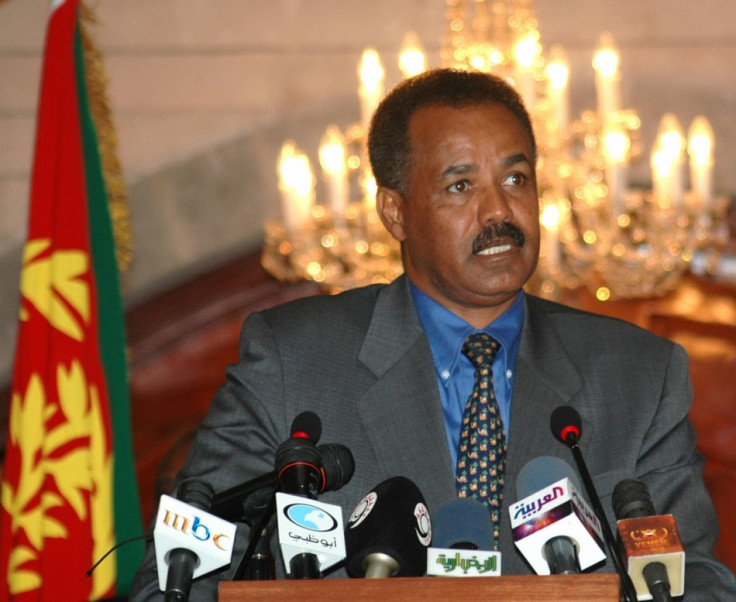Sweden: Eritrean President Afewerki Reported for Crimes Against Humanity

Eritrean president Isaias Afewerki and several other ministers have been reported to the police for crimes against humanity in Sweden thanks to a new law that allows such crimes to be prosecuted in the north European country.
Human rights lawyer Percy Bratt, who led the unprecedented legal move in Sweden, stated that the Swedish penal code's change enables judges to prosecute crime regardless of where they have been committed or by whom.
"This is not only symbolic. We believe there are legal grounds to prosecute the people we have named," he told AFP. "There are also many Eritreans in Sweden who could give information about the conditions in the country in general.
"There is a lot of evidence from human rights groups, particularly about indefinite imprisonment without trial," he said.
The report lists a series of alleged crimes including torture and kidnapping, and targets Afewerki and several of his ministers by name.
The development came after the UN Human Rights Council agreed to launch a year-long inquiry into human rights abuses in Eritrea.
The UN refugee agency said 313,000 people have fled Eritrea, about 6% of a population that Keetharuth said was estimated at 5 million.
Torture, arbitrary detention and severe restrictions on freedom of expression are routine in the so-called "North Korea of Africa".
Mandatory military service, imposed on all men and women between 18 and 55, is one of the main causes of flight from the country. It has been calculated that 4,000 Eritreans leave the country every month. Keetharuth said conscription in Eritrea is equal to indefinite forced labour.
It has been calculated that Eritreans now make up the single largest nationality among people fleeing in Europe across the Mediterranean.
A study, released by human rights activist, reported that between 2007 and 2012, some 25,000 to 30,000 migrants were trafficked by Eritrean and Sudanese security officers, who are believed to collude with Bedouin gangs.
According to the study, Eritreans are abducted by senior military officers and smuggled into Sudan. There, they phone the victims' families and threaten to sell the hostages to Bedouin traffickers in Sinai, if relatives do not raise tens of thousands of dollars.
A special investigation by IBTimes UK confirmed that the Eritrean government still collects a controversial "diaspora tax" from nationals living in the UK - despite assurances by British officials that the practice has been stopped.
The collection of a 2% income tax on Eritrean nationals living abroad violates UN resolution 2023 which condemns Eritrea's use of the tax to "destabilise the Horn of Africa region and to violate the sanctions regime". Some of the money is used to procure weapons for Islamic militants.
The UN Security Council hardened sanctions against Eritrea in December 2011 over its alleged support for Islamist militant groups such as Somalia's al-Shabaab.
© Copyright IBTimes 2024. All rights reserved.









